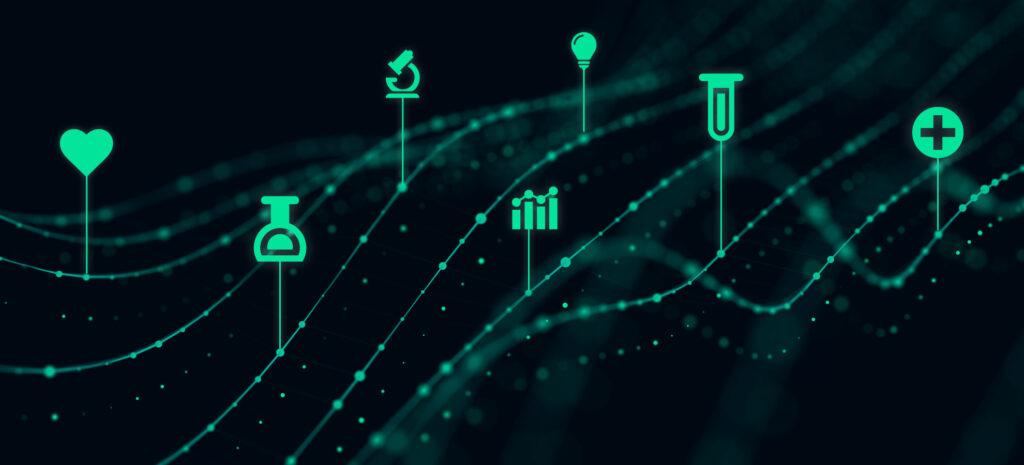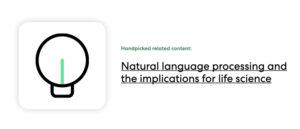Artificial intelligence represents a brave new frontier – not only for life science, but for the world at large. In a recent interview with McKinsey, insitro CEO, MacArthur genius grant recipient and one of TIME Magazine’s Most Influential People Daphne Koller discussed the role of machine learning in drug discovery, what the future might hold, and why AI is finally ready to deliver value in life science.
We caught up with Jason Smith, CTO of AI & Analytics at Within3, to get his take on Koller’s eye-catching interview, and the role of AI in drug development.
AI: why now?
The rise of AI has been a long time coming. It’s a technology that has promised a great deal of potential for years, and is finally starting to deliver on a consistent basis. Koller’s company, insitro, uses the power of machine learning to improve pharmaceutical R&D – reducing the failure rate to produce better, more successful medicines. But why is AI finally ready to deliver on its great promise? What makes ‘now’ any different from three or four years ago? “Now we’re in a world where there’s an unbelievable ability to both access and generate data that is fit for purpose for machine learning,” Koller explains to McKinsey interviewer Lydia The. “Now is a time when we can really make a difference in applying machine learning to biomedical data.”
“A significant contributing factor is that compute power has finally allowed AI to operate in an efficient manner,” explains Jason Smith. “Cloud-accessible compute power is enabling AI to analyze millions of permutations of biological reactions – in various states – to evaluate and predict the effectiveness of a compound, and understand how a different biological makeup may deliver a different result for the end patient.”
The role of AI in drug discovery
So how does AI in drug discovery work, and what are the benefits of applying the technology to a highly-regulated process worth billions of dollars every year? “There are multiple places in the drug discovery process where we need to make significant decisions,” Koller tells McKinsey. “If we’re lucky, one decision will get us to a good outcome, but the rest will get us to a dead end…”
“With AI, we’re able to use large amounts of data to build ‘compasses’ that allow us to know – when we get to these forks in the road – which path will most likely lead to success.”
– Daphne Koller, Founder and CEO, insitro, via McKinsey
“Applications of AI in drug discovery often focus on the interaction of new chemical compounds and biological reactions,” adds Smith. “This helps researchers evaluate the usefulness of a candidate compound. The goal is leveraging AI to understand large volumes of complex data, leading to safer, more effective drugs brought to market faster.”
The future potential of AI
AI is embedded within our daily lives in ways we don’t always appreciate. Our social media feeds, the apps we use to navigate to work or school, our online shopping experiences, and even our email spam filters rely on artificial intelligence – and that’s before we mention things like autonomous vehicles, voice assistants, and the numerous AI applications found in life science.
“Just four to five years ago, skeptics thought AI was going to be completely useless,” Koller states.
“Where I think we’ll be in 15 years is that machine learning will be an absolutely critical, pivotal shift – a paradigm shift in how we discover and develop medicines.”
– Daphne Koller, Founder and CEO, insitro, via McKinsey
“It will touch every single facet of how we discover and develop medicines, and accelerate and improve every single one of them.”
Jason Smith largely echoes Koller’s sentiments. “Given Within3’s role in the ecosystem, I don’t believe we are in the position to predict this,” he explains, “but I do agree with Koller’s assessment. AI will be integrated into multiple facets of drug discovery and patient care.”
“The most exciting potential for AI in drug discovery is the development of safer drugs with higher effectiveness – and getting them to patients who need them faster than through traditional methods.”
– Jason Smith, CTO, AI & Analytics, Within3
Within3 in the AI space
Within3 is also doing innovative work in the AI space. Although not directly related to the drug discovery process, Within3’s AI tools help life science companies gather the valuable insights they need to make faster, better-informed decisions – whether that’s identifying an unexpected nine-figure out-licensing opportunity, replacing more than 400 hours of manual processing, or identifying a rich new source of expert opinion.
“We are primarily focused on natural language processing, proteomic analysis, time-series, and social network analytics,” Smith explains.
“We leverage these technologies to help identify two key groups in the ecosystem. First, HCPs and their behavior in treating patients. Second, identify patient populations and understand their views on drugs in the market.”
– Jason Smith, CTO, AI & Analytics, Within3
Learn more about how artificial intelligence is changing drug development, or, read Jason Smith’s article on artificial intelligence and patient centricity in AIthority.







